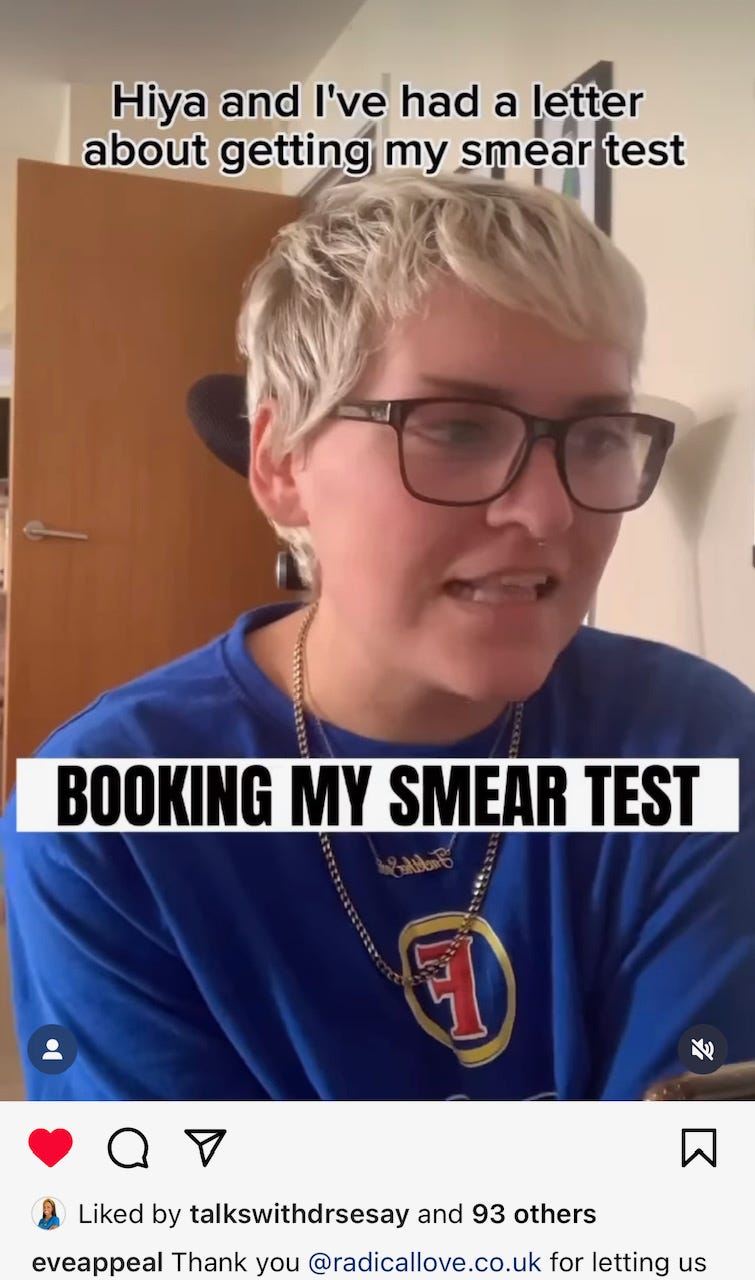Issue 9:👩🏽💻 $1,600 hormone summit, wearables plug research gap, taboo tech & more
11 stories from the world of women's health innovation & FemTech
Hi, welcome to FutureFemHealth, the newsletter that brings you a weekly dose of news and inspiration about innovation in women’s health and FemTech.
I’m Anna and whether you’re a founder, an investor, someone who works in women’s health / FemTech or are simply a fan, I’m glad you’re here to join me.
Misinformation in women’s health
‘Inside Gywneth’s Paltrow’s $1,600 hormone summit’ was the title of an LA Times feature that’s been doing the rounds on social media this week. Did you see it?
If you haven’t read it, don’t be put off by the mention of Gywneth Paltrow in the headline! It’s actually a useful analysis of why there’s so much misinformation surrounding women’s health.
‘If women went to their doctors and got information, they would not be going to an actress. The reason women do that is their own doctors didn’t help them.’
For any women’s health and FemTech consumer brand, educational content is usually a key part of content strategy - often because ‘official’ information has been so unavailable. And I think this feature is a great reminder of why it’s so important to keep doing that, why it can have such an impact - and also why there’s a serious responsibility that comes with that too.
Onto the rest of this week’s news…
📌 FemTech news to know
🤑 Investors are ignoring a huge subsection of tech because of its “taboo” nature – even though it is set to be worth $1 trillion by 2027. (CNBC)
💯 FemTech giant Maven is one of the ten ‘medical marvels disrupting healthcare’, according to Newsweek. Also featured is physiologist Polina Lishko and her research into contraception that doesn’t affect hormones. (Newsweek)
👩⚖️ Welsh Labour MP calls upon the Government to better support FemTech. Alex Davies-Jones writes: “These nascent sectors could transform women’s health, provide a huge boost to public awareness, and help prevent issues before they reach the NHS’s door, but the lack of direction from government on tech more generally is hampering this ambition.” (Politics Home)
✍🏻 There’s a backlog in the approval of applications for the CE mark for medical devices (as as required for European start-ups). This is prompting some founders to turn attention the US. (Science Business)
⚠️ The FDA has issued a warning to heart monitoring software start-up iRhythm. It relates to its marketing practices and algorithm changes. This shows a tightening of scrutiny from the FDA. (Stat News)
✏️ Raising a Series A in 2023? Here’s a VC’s view on what you need to know. Includes tips on how to structure your deck and what you need to include. (Claire MacMillan via LinkedIn)
📍Here’s a view from Canada on how workplaces are offering fertility benefits to employees. (The Globe and Mail)
🌟 Research breakthroughs
❤️ Breast cancer survival rates have improved substantially compared to the 1990s, according to new research published in the BMJ. Living with breast cancer rather than dying from it is the new normal. (BMJ)
📈 There’s mounting evidence that a bacteria may be the cause of endometriosis. Researchers in Japan have been documenting how Fusobacterium might spur the development of endometriosis. (Stat News)
👟 Wearables are helping to plug the gap in women’s health research. One such wearable, Whoop, is doing just that for sports science. For example, it’s gathered evidence that shows working out while pregnant is beneficial to women. (Women’s Running)
📢 Women’s health campaign of the week
And finally, I LOVED this post from gynaecological cancer research charity, The Eve Appeal, which shared a video of someone nervously booking their cervical smear test. It a perfect example of really knowing your audience and taps into the insight that making phone calls is something young people probably dread more than the physical doctor’s appointment!
Watch it here:

That’s all for now. Until next time,
Anna


